The exact cost of a 300kW charging station isn’t definitively known but can be estimated at over 3 billion VND. This estimate includes the charging pillar, transformer station, and auxiliary devices.
Cost Structure of a 300kW Charging Station
The expense of a 300kW station is composed of various factors such as the cost of the charging pillar, transformer investment, and supporting equipment. Although there’s no precise figure for a 300kW station, the cost of a 250kW unit is close to 3.3 billion VND, indicating a higher outlay for the 300kW version.
Setting up a 300kW charging station in Vietnam comes with numerous cost elements that demands meticulous examination. To help CEOs and corporate leaders grasp this financial picture, we present the following detailed analysis.
1. Equipment Costs for Charging Station
Equipment for a 300kW super-fast charging station ranges from 500 million to 1.5 billion VND per pillar. This investment is influenced by the brand and technical specifications of the equipment, including the charging pillar, electronic management systems, and accompanying control software.
2. Installation and Electrical Infrastructure Costs
Electrical infrastructure installation costs for charging stations vary significantly, from 50 to 300 million VND depending on the scale. Notably, grid upgrades and transformer station investments with capacities between 320-400 KVA are major cost factors, requiring 100 to 500 million VND. Additional expenses such as distribution cabinets, router cabinets, and cabling systems incur costs from 150 to 250 million VND for a configuration of three pillars (two 120kW and one 60kW). Furthermore, fire protection systems range from 50 to 150 million VND.
3. Space and Licensing Costs
Leasing space for a super-fast charging station costs between 10 and 50 million VND monthly, contingent on location. Additionally, obtaining construction and electrical connection permits might range from 20 to 100 million VND depending on specific regional requirements.
4. Management and Operational Costs
Management and operational costs are inevitable, with station management software and other operational expenses between 50 to 200 million VND annually.
Aside from these cost elements, the rapid charging capability of a 300kW station plays a crucial role in optimizing investment capital usage. This type of fast-charging station is ideal for public areas or sites where customers require brief downtime on highways, as quick charging reduces usage time and increases revenue from the investment.
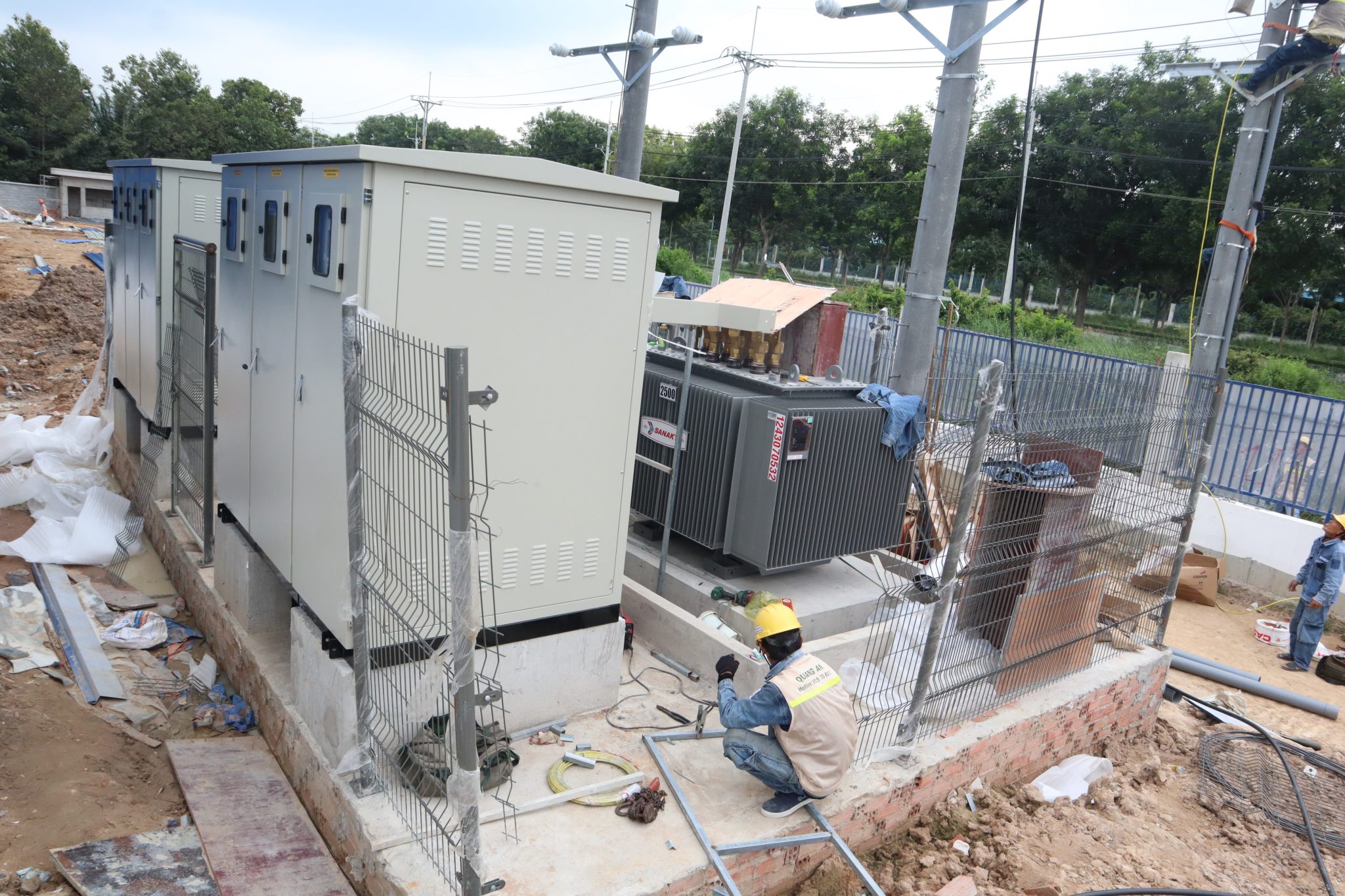
Investment in Electrical Infrastructure for Charging Station
Investment in electrical infrastructure, particularly transformer stations, constitutes a substantial portion of the total cost for charging stations. The investment cost for a four-pillar transformer station can exceed 1 billion VND, depending on the region and required capacity.
Investing in electrical infrastructure for EV charging stations in Vietnam is gaining attention as the demand for electric vehicles grows. With a target of net zero emissions by 2050, developing electrical infrastructure becomes a key factor.
According to expert GS.TS Lê Anh Tuấn, the total investment needed for electric vehicle charging stations in Vietnam by 2050 exceeds 90 billion USD. The Power Plan VIII indicates a need for approximately 9 billion USD in infrastructure investment by 2030 and up to 14 billion USD annually from 2031 to 2050.
Development Roadmap for Charging Infrastructure
- By 2027: Focus on major cities like Hanoi and Ho Chi Minh City to develop charging stations for high-income households.
- From 2027 to 2030: Expand charging stations beyond urban areas in preparation for increased demand.
- Post-2030: Increase the density of charging stations in both urban and rural areas to match improving financial capabilities of residents.
Objectives in Major Cities
- In Ho Chi Minh City, there are plans to establish at least 3,000 charging and battery swap points, meeting the requirements of 350,000 – 400,000 electric motorcycles.
- In Hanoi, management and reporting mechanisms for charging stations are being finalized, with approximately 1,000 currently recorded.
Major cities such as Hanoi, Ho Chi Minh City, and Da Nang will prioritize investment in rapid public charging networks at key transportation hubs.
Investment Models and Challenges
The trend of developing franchised charging stations is being implemented to expand networks efficiently. Collaborating with partners like parking facilities, fuel stations, and shopping centers to share profits is a sensible strategy.
However, synchronized electrical infrastructure investment is needed to avoid overloading the system, along with state policy support and standardized technical specifications as challenges to address.
This entire process is part of a sustainable energy policy and the diversification of electrical infrastructure in Vietnam, ensuring electric vehicles can become a common mode of transportation.
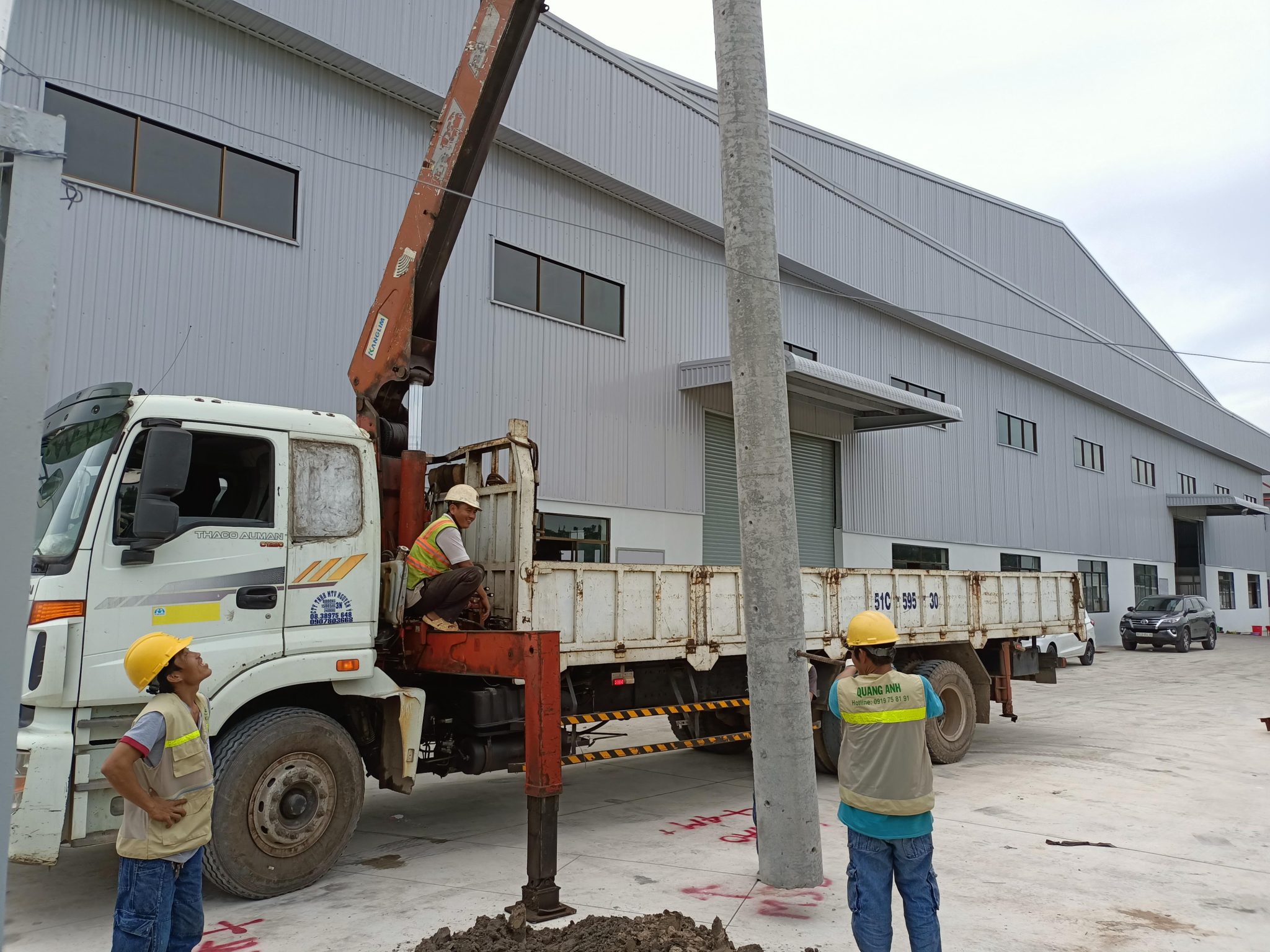
Auxiliary Equipment Costs for Charging Station
Besides core expenses, auxiliary devices like electrical cables, distribution cabinets, and router cabinets significantly affect the overall cost, adding several hundred million VND to station investment.
Auxiliary equipment costs for charging stations are crucial in the total investment for electric charging stations. Key factors influencing these costs include the type of station, capacity, hardware, installation costs, management software, and maintenance.
- Main hardware costs: AC Level 2 charging stations have hardware costs around 2,500 – 7,000 USD, while DC Level 3 stations range higher from 20,000 to 50,000 USD depending on capability and features.
- Installation costs: Major cost factors, with Level 2 stations costing between 2,000 and 5,000 USD, while fast DC chargers can reach up to 50,000 USD. In Vietnam, AC station setups range 15 – 50 million VND, and DC stations from 100 – 500 million VND based on specific conditions.
- Software and network costs: Include charging management software, monitoring, and payment processing, ranging from 200 – 500 USD annually for AC stations and 500 – 1,000 USD for DC stations. Advanced energy management systems add about 4,000 – 5,000 USD.
- Maintenance and repair costs: Vary from 500 – 1,000 USD annually for Level 2 stations and around 1,000 – 3,000 USD annually for fast chargers to maintain operational efficiency.
- Other auxiliary costs: Power connection, foundation construction, and canopies add costs from 10 – 100 million VND for electrical connections and 15 – 50 million VND for additional infrastructure.
The total auxiliary equipment cost for commercial charging stations may range from 4,500 – 12,000 USD for AC stations and 30,000 – 100,000 USD for DC stations. Local factors, electrical infrastructure, and local technical requirements greatly affect the total investment cost.
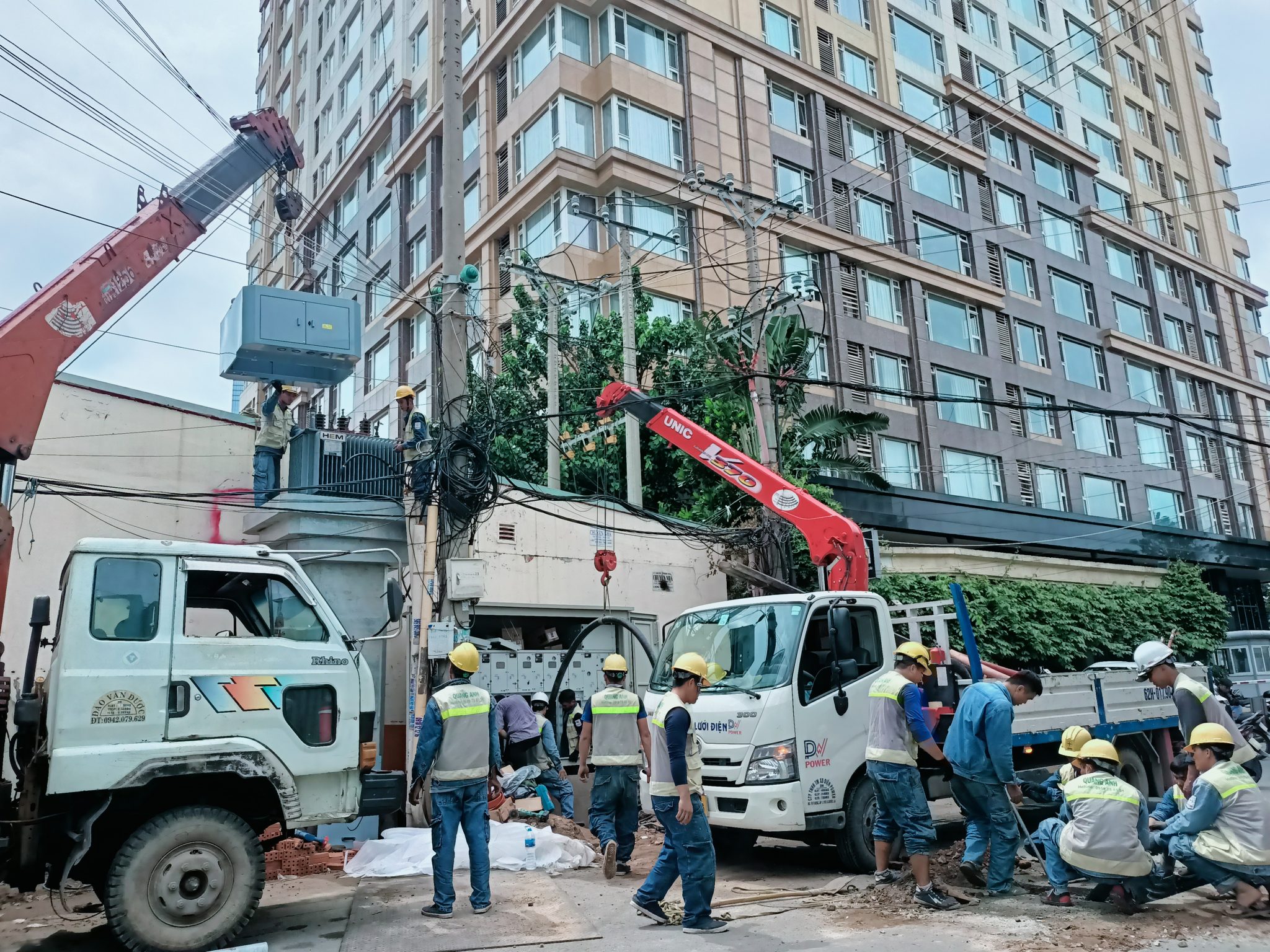
Pricing for EV Charging and Related Services
Charging service pricing in Vietnam varies from a few thousand to 9,000 VND/kWh, with rapid charging stations of 60 kW and above costing around 8,900 VND/kWh and higher, highlighting necessary investment costs.
EV Charging Service Pricing
EV charging services are increasingly popular in Vietnam, and the pricing of this service is a significant consideration for business leaders.
1. Public and Home Charging Prices:
-
VinFast announced public EV charging fees at 3,210 VND/kWh, equivalent to current household electricity rates. This fee includes VAT and no additional costs during charging. If the user doesn’t unplug after full charge, an extra 1,100 VND/minute from the 31st minute is applied to deter occupying stations.
-
For third-party services, standard (AC) charging prices range around 7,900 VND/kWh, while fast (DC) charging is 9,900 VND/kWh. Providers anticipate pricing fluctuations subject to electricity costs and regulations from the Ministry of Industry and Trade.
2. Energy Consumption and Cost Optimization:
-
Household and industrial electricity pricing basis for charging is typically updated as follows:
-
Normal hours: around 2,870 VND/kWh.
-
Low consumption hours: 1,746 VND/kWh.
-
Peak hours can reach up to 4,937 VND/kWh.
For cost savings, users should charge during low consumption hours or overnight.
-
The Ministry of Industry and Trade is refining pricing policies specific to EVs, ensuring transparent costs and fairness, aiding users in making informed choices.
3. Charging Station Costs and Price Management Trends:
- Currently, public EV charging station pricing is based on business retail prices for sub-6 kV power levels. As a new service, authorities are studying pricing mechanisms and policy adjustments to ensure fair competition among service providers.
4. Related Services:
- Aside from charging, repair services for charging equipment are also gaining attention. For example, replacing an iPhone charging plug costs between 150,000 VND to 1,250,000 VND depending on model and warranty type.
Optimizing Charging Service Pricing is crucial not only for consumer savings but also as a critical factor in Vietnam’s sustainable development in the electric charging service industry.
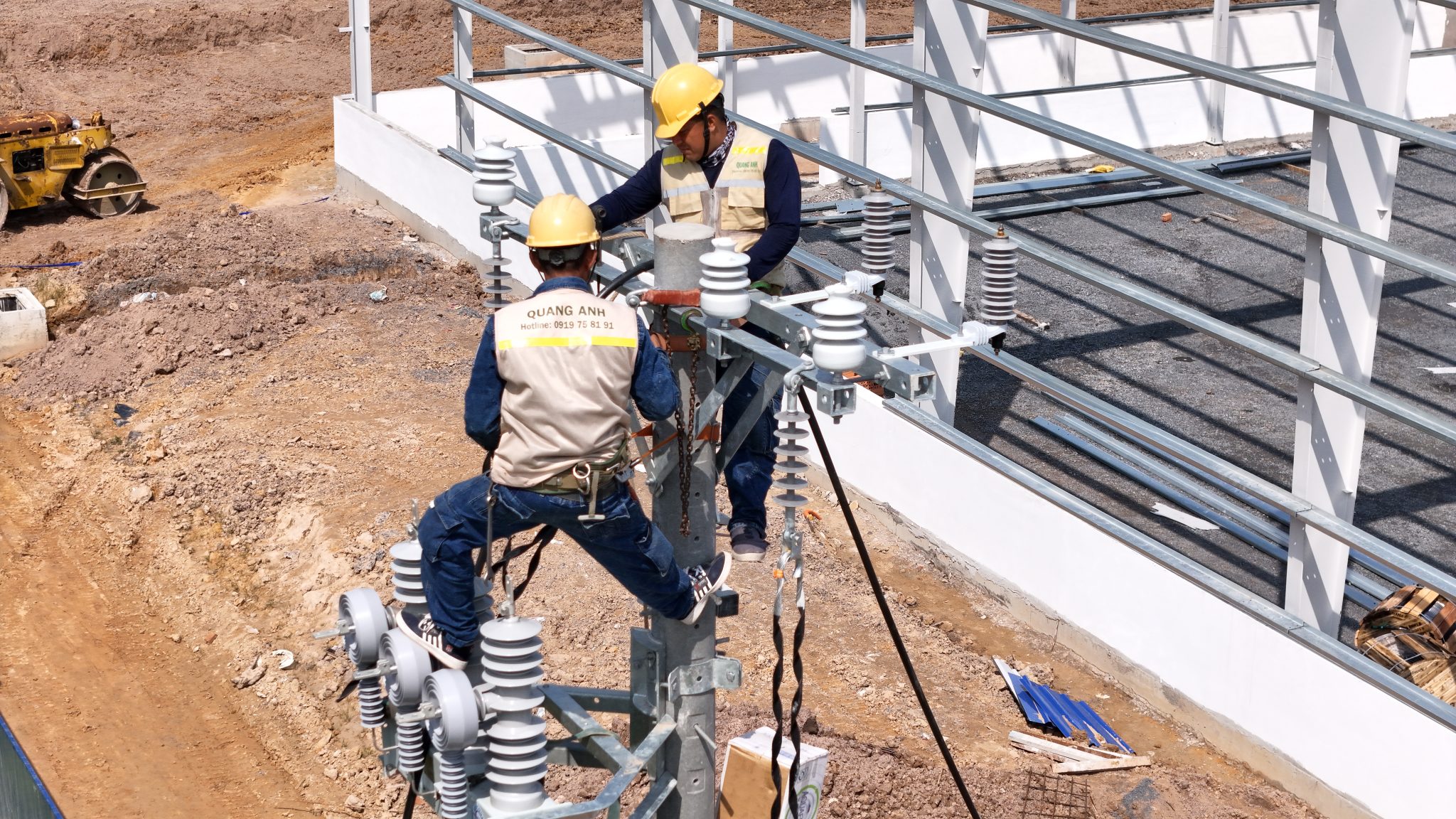
Estimated Costs for 300kW Station
Based on current expenditures, the estimated price for a 300kW charging station exceeds 3 billion VND, encompassing necessary investment and equipment costs.
Investing in a 300kW charging station demands thorough financial and technical preparation. To ensure efficient operation, businesses must focus on major expenses like transformer stations and fast-charging pillars, alongside other auxiliary costs.
Transformer installation costs are a crucial part of the total investment for a 300kW station. The type of transformer suitable for this capacity can cost from 800 million to over 1 billion VND, depending on the project’s location and actual scale. Additionally, fast-charging pillars with capacities from 60kW to 120kW should be considered to meet effective charging needs. These pillars price from 278 million VND for 60kW models up to 676 million VND for 120kW types, making the overall cost about 1 billion VND when utilizing multiple pillars.
Auxiliary expenses like distribution cabinets, control cabinets, and electrical wiring from the transformer to each charging pillar usually range from 100 to 150 million VND. Meanwhile, costs for land acquisition, leasing, and constructing electrical infrastructure could add several hundred million VND.
The total budget to complete such a 300kW station is projected to range from 1.5 to 2 billion VND. Costs vary by region, charger technology, and specific technical requirements.
When calculating operational costs, electricity pricing should be considered. With an average electricity cost for the station estimated between 2,100 – 3,200 VND/kWh, investors should evaluate return-on-investment potential and the impact of local electricity price fluctuations.
Investing in charging stations may extend the time for capital return beyond three years, as the current selling price for EV electricity is relatively low.
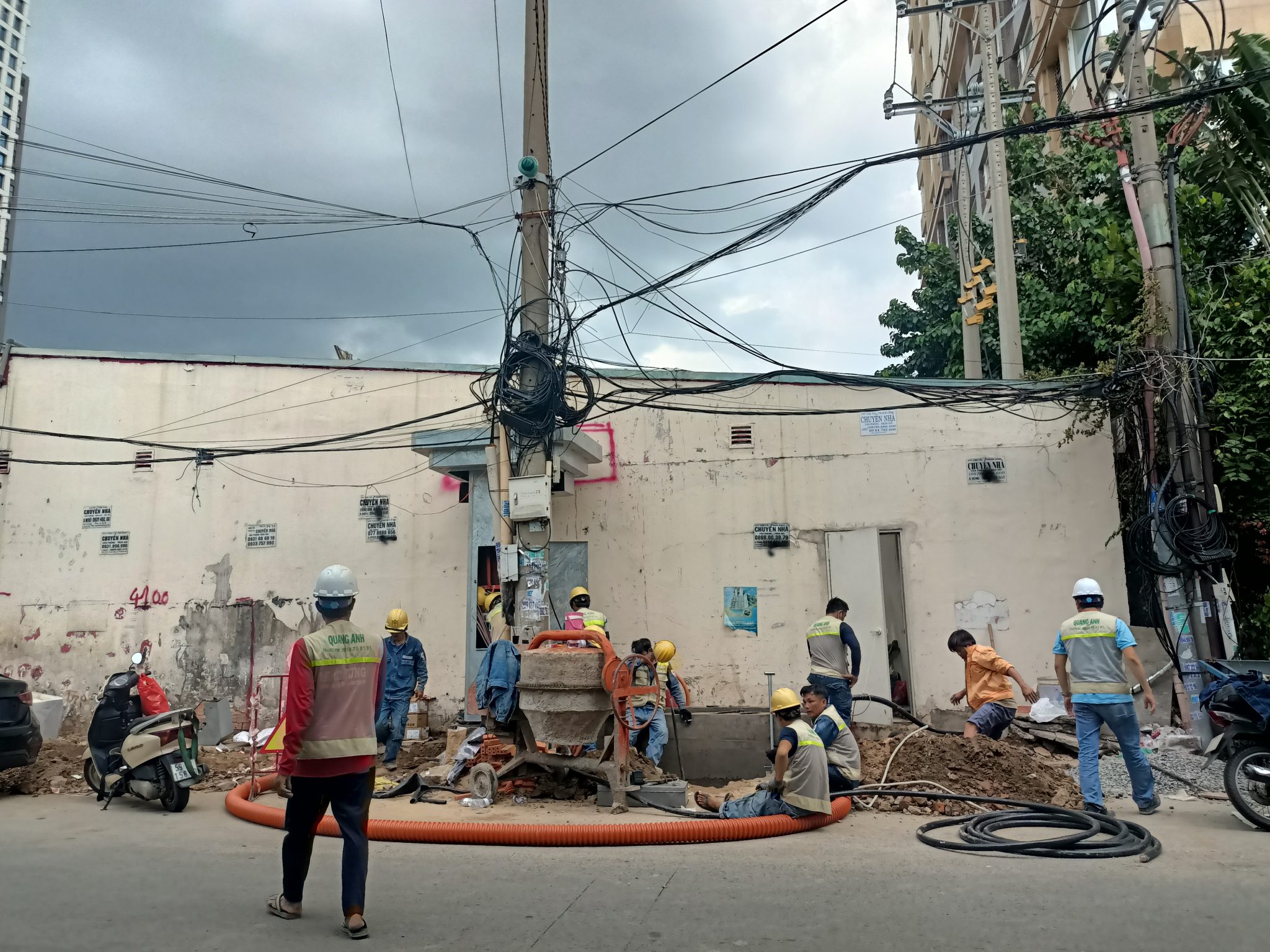
Investing in a 300kW charging station not only addresses power needs but also contributes to sustainable development in the energy sector. Significant investment costs are coupled with long-term benefits, optimizing efficiency and meeting rising market demands.
For more detailed information and precise quotes, please contact QuangAnhCons at +84 9 1975 8191.
QuangAnhCons offers investment and construction solutions for electric charging stations with an experienced team, ensuring high performance and economic efficiency for all projects.
[contact-form-7 id="7239967" title="Contact form 1"]

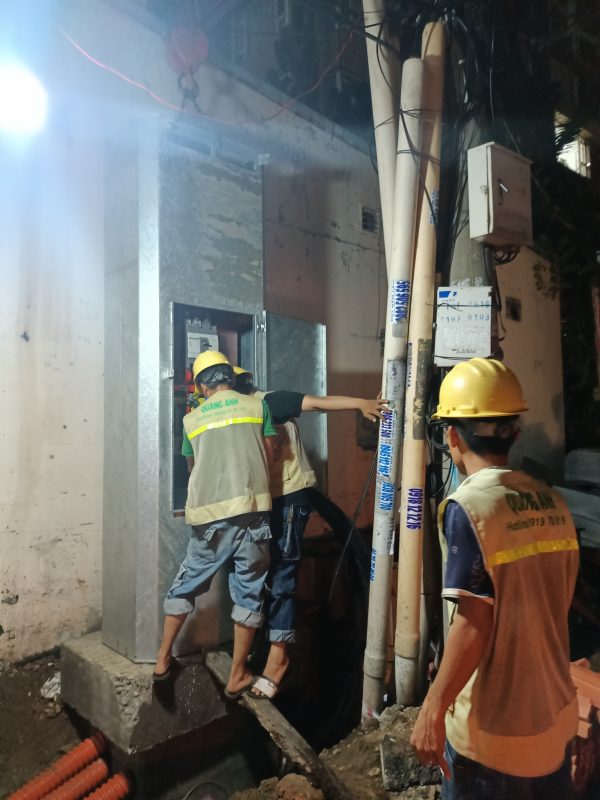
Related Posts
Tay Ninh Solar Power Planning: Technical Framework, Grid Interconnection, and Rollout Roadmap
Technical overview of solar planning in Tay Ninh: irradiation, grid capacity, permitting, design, operations, and [...]
Dec
Binh Duong Solar Planning: Regulatory Framework, Grid Interconnection, and an Implementation Roadmap for Factories and Industrial Parks
An overview of Binh Duong solar planning: legal framework, interconnection, design, risk management, and an [...]
Dec
Solar Farm Repair: O&M Workflow, IV Curve Diagnostics, Thermography, Inverter Service and Utility-Scale Safety
A utility-scale solar farm repair plan centered on O&M, IV curves, thermal imaging, inverter service, [...]
Dec
Dong Nai Solar Power Plan 2023–2025: Tri An 1,029 MW, Grid Upgrades and the DPPA Pathway
A complete look at Dong Nai’s solar power plan: Tri An 1,029 MW, irradiation potential, [...]
Nov
Quang Ngai Solar Power Plan 2024–2030: Legal Framework, Irradiance Potential, and Development Roadmap
A complete look at Quang Ngai’s solar power plan: capacity targets, irradiance (PVout), development zones, [...]
Nov
Solar Damage Assessment Services: On-Site Procedures, EL/IV/Thermography Testing & Compliance with Standards
Discover IEC/UL/NEC standard solar damage assessment processes: on-site evaluation, EL and IV curve testing, thermal [...]
Nov
Comprehensive Package Estimate for a 1800MVA 500kV Substation: Scope, Configuration 3x600MVA, Standards and Timeline Management
An overview of the 1800MVA 500kV substation estimate: construction scope, configuration 3x600MVA, GIS/AIS, SCADA, standards, [...]
Nov
Factory Electrical Systems: Comprehensive Design and Implementation Guide
Discover the detailed and safe process of factory electrical systems design and implementation. [...]
Oct
Blueprints Required for Factory Construction Permits
Discover the necessary blueprints in factory construction permit applications, from floor plans to electrical and [...]
Oct
What Are the Requirements for a Factory Construction Permit? A Comprehensive Guide
Explore the documentation and steps needed to secure a factory construction permit for streamlined project [...]
Oct
Factory Construction Permit Procedures in Vietnam: Essential Guidelines and Documents
Learn the procedures for securing a factory construction permit in Vietnam, focusing on document preparation [...]
Oct
Key Steps in the Factory Construction Process
Discover the essential steps and requirements for building factories. [...]
Oct
Comprehensive Electrical Substation Solutions by Quanganhcons
Discover the cutting-edge electrical substation solutions offered by Quanganhcons for industrial applications. [...]
Oct
Investment Costs for a 1MWp Solar Power System and Influencing Factors
Explore the investment costs for a 1MWp solar power system in Vietnam and the influencing [...]
Sep
QuangAnhcons: Elevating Wind Energy Solutions
Explore QuangAnhcons' leadership in wind energy and renewable solutions in Vietnam. [...]
Sep
Electrical Contractor Strategies at Becamex Industrial Park
Discover the strategic advancements and partnerships of the electrical contractor at Becamex Industrial Park. [...]
Sep
Investment Insights for 1MW Wind Energy in Vietnam: Costs and Opportunities
Discover the detailed analysis of costs and opportunities for investing in 1MW wind energy projects [...]
Sep
Advanced Electrical Installation Solutions by QuangAnhcons
Explore advanced electrical installation solutions and modern technology with QuangAnhcons. [...]
Sep
Enhancing Industrial Electrical Services with Quanganhcons
Discover Quanganhcons' expertise in industrial electrical services, offering efficient and sustainable power systems. [...]
Sep
Comprehensive MEP Solutions by QuangAnhcons: From Design to Maintenance Excellence
Discover optimal MEP solutions with QuangAnhcons, dedicated to excellence from design through maintenance. [...]
Sep